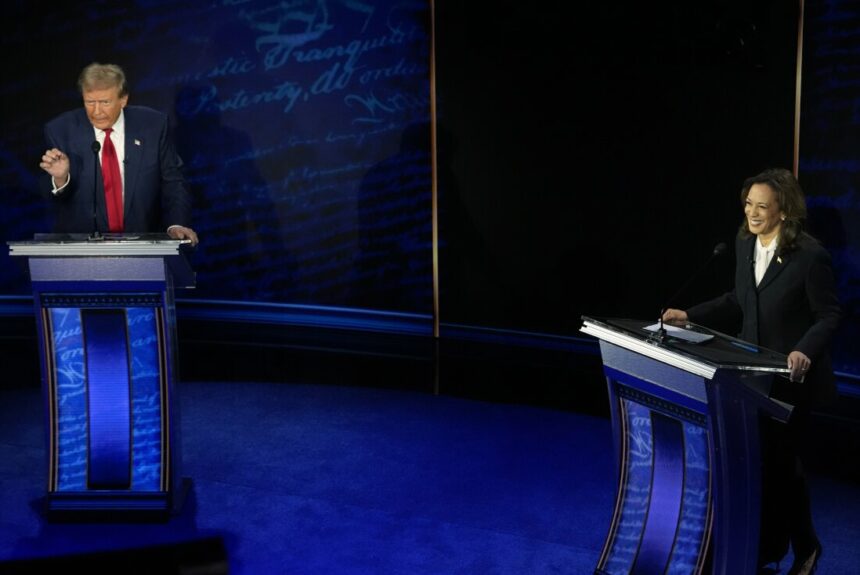In the first and possibly only debate between former President Trump and Vice President Kamala Harris, Fox News’s Dana Perino noted Trump “took all the bait, and none of the opportunities.”
In a key exchange, Harris goaded Trump into going off message by inviting people to attend Trump’s rallies so they could see people walk out early due to exhaustion and boredom. Trump’s defensive, meandering response featured a claim that migrants in Springfield, Ohio are “eating the dogs … They’re eating the cats. They’re eating – they’re eating the pets of the people that live there. And this is what’s happening in our country. And it’s a shame.”
When pressed by ABC moderator David Muir that the city manager disputed those claims, Trump said, “Well, I’ve seen people on television.”
>>>READ: Harris Has a Policy Problem, not a Values Problem
This headline-grabbing moment won’t make this debate as consequential as Trump’s debate with Biden. That debate ended Biden’s campaign when Trump noted at one point that he didn’t know what Biden said, and Biden didn’t know what he said either. But small movements in a race that is virtually tied can be decisive.
The question about climate change (see transcript) was an opportunity for Trump to woo independent voters in a few key swing states. Instead of speaking directly to those voters, Trump offered grievance and attempted to bring the conversation back to what he thinks voters really care about: Hunter Biden. Trump said, “Why did he get 3 1/2 million dollars from the mayor of Moscow’s wife?”
Trump could have said that emissions went down during his administration in part because he supports fracking. But he didn’t. He could have said free economies are twice as clean as less free economies. But he didn’t. He could have turned the question back to affordability (the top issue for independent voters) and asked, “Where is the environmental justice in increasing energy prices for poor people?” But he didn’t.
>>>READ: Tim Walz Pick Signals Progressive Confidence on Climate Policy
Other Republicans have developed a mastery of the “climate question.” U.S. Representative John Curtis (R-UT) won a competitive Senate primary in part by directly acknowledging that climate change is real. He then notes that he cares about environmental stewardship and outlines policies that illustrate why energy abundance and an “all of the above” energy strategy is good for people and the planet. Our Candidate Briefing Book is built around six words that can fit on a yellow sticky note: It’s real. I care. Economic freedom.
Instead of using the question to pivot to principles and policies that are wildly popular with independent voters, Trump rushed to pivot to Hunter Biden with an argument that only very online MAGA voters could follow.
This debate isn’t likely to cause a huge swing toward Harris, but a very small swing may be all she needs.
The views and opinions expressed are those of the author’s and do not necessarily reflect the official policy or position of C3.
